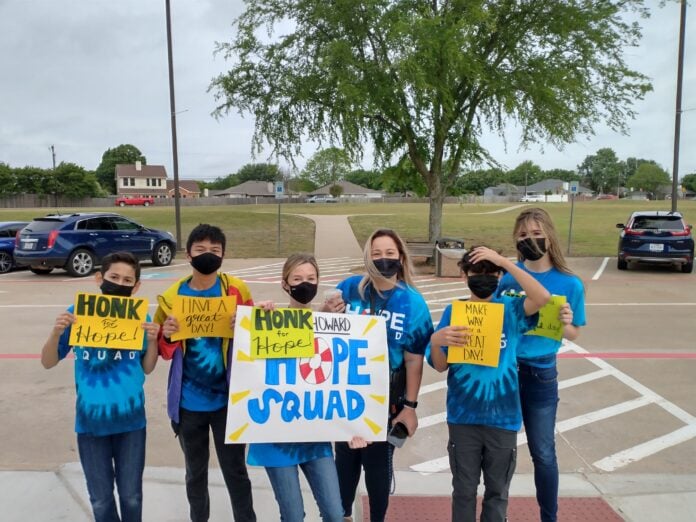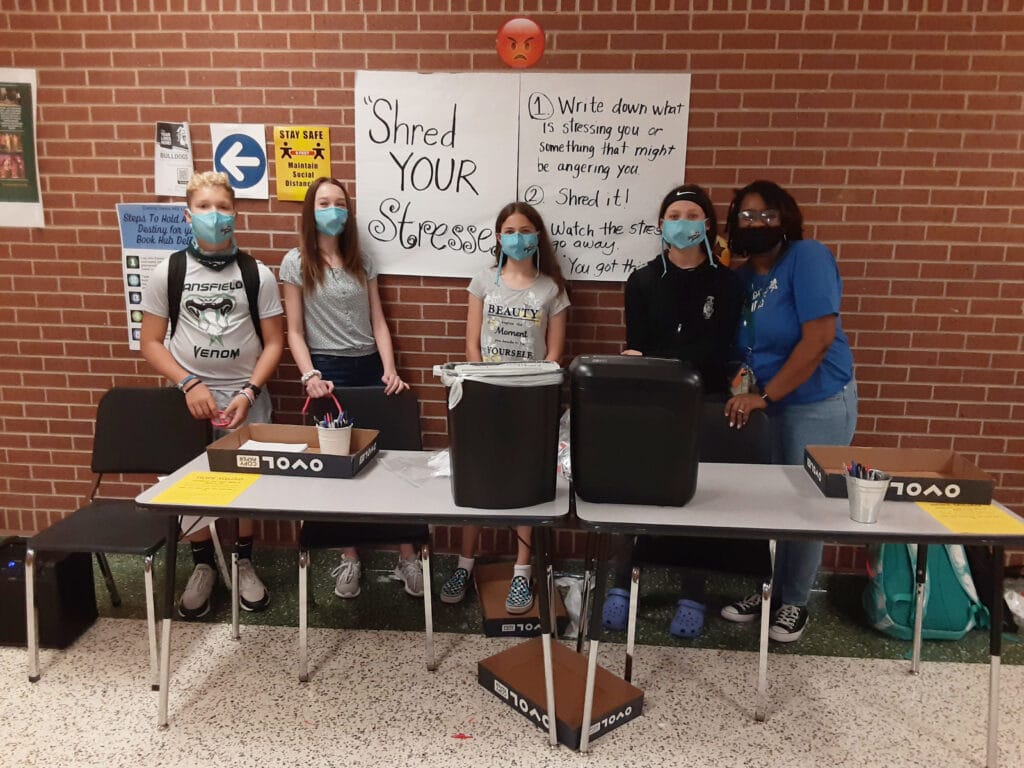
Students Helping Students Find Hope In Dark Times
No matter how bleak things seem, there’s always hope. It’s what make life worth continuing.
In places like the Mansfield School District, students are working together to bring hope to each other through an organization known as Hope Squads. They are part of a national organization based out of Utah that works to prevent suicide through education, training and peer intervention.
Jennifer Powers, MISD Director of Guidance and Counseling, learned about the Hope Squads and researched more about how the peer groups are saving lives. She then worked to bring the Hope Squads to MISD. Through a partnership with The Jordan Elizabeth Harris Foundation, the program was able to launch at MISD middle schools.
“What I love about Hope Squads is that it is mostly student led. The squad is selected by students, and that culture of trust, support, connection and kindness is built from the very beginning because of that,” Powers said.
Hope Squad members are nominated by their classmates as trustworthy peers and then trained by advisors to be alert and know when other students might be in distress. Instead of waiting for a peer to come to them, Hope Squad members are the ones to reach out first.

Changing How Schools Approach Mental Health
Hope Squad members recognize the warning signs of suicide. They then reach out to peers in distress and refer them to trusted adults.
On the national website, it explains that the Hope Squad program was built by educators in partnership with mental health experts. The evidence-based training changes how schools approach mental health and suicide prevention.
Hope Squad members are trained to act when someone is struggling. They learn to show empathy to their peers, listen without judgment, and reduce stigma about help-seeking and mental illness.
Hope Squad members also recognize bullying, intervene and encourage other students not to be bystanders, to help as well. They also work closely with their local mental health agency to help reduce the stigma associated with mental illness and mental health, stressing that it’s okay to need help and to seek that help.
And, Hope Squad members understand the complexity of substance abuse. They encourage peers to make healthy choices and work to persuade struggling peers to get help.
Expanding Hope Squads to MISD High Schools
Currently, Hope Squads are at all MISD middle school campuses – James Coble, T.A. Howard, Linda Jobe, Danny Jones, Charlene McKinzey, Brooks Wester, Rogene Worley, and Jerry Knight STEM Academy. However, the MISD Education Foundation recently gave a grant to the MISD Guidance and Counseling Department to expand the Hope Squads to all high schools as well. High school Hope Squads will be formed as early as spring 2021.
“We want every student to feel a sense of belonging when they walk into any one of our campuses, and the Hope Squad helps us to be proactive in doing that,” Powers said.









